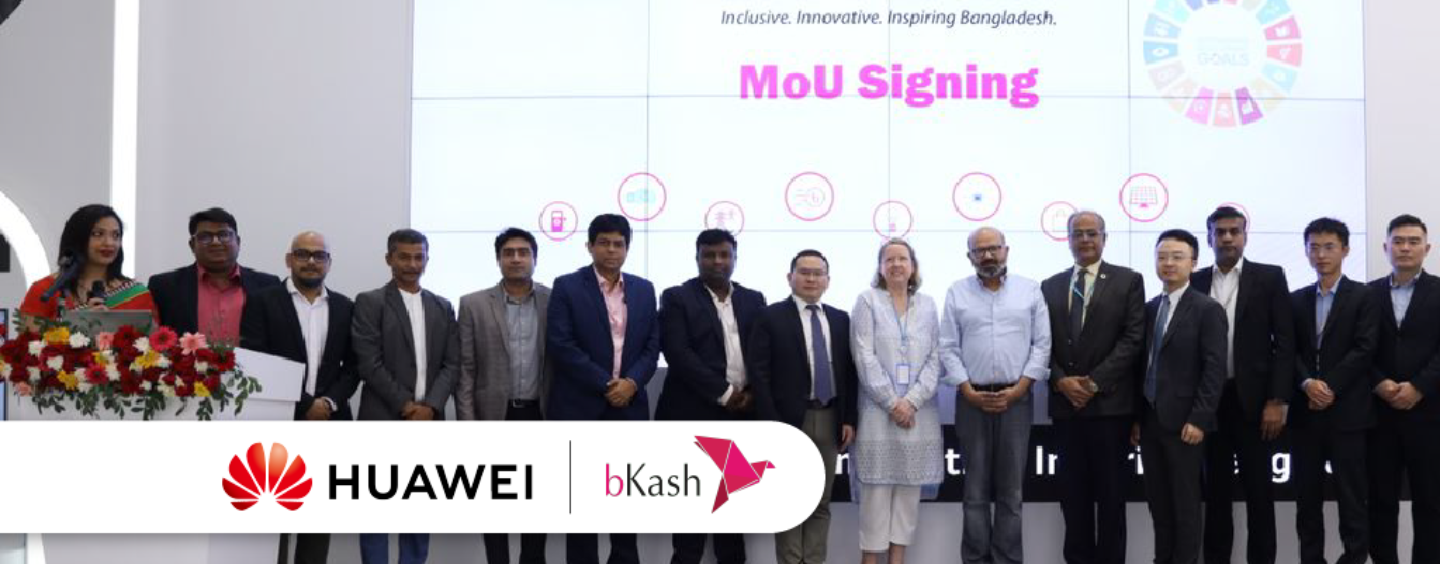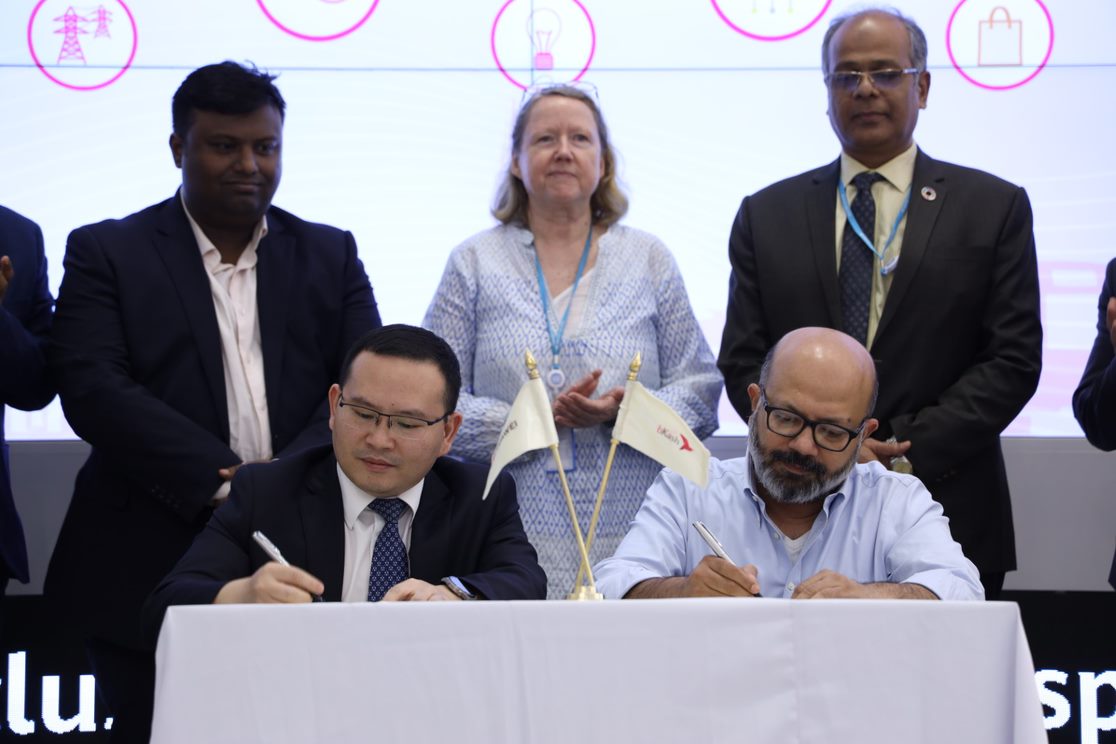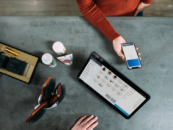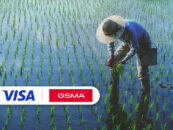
Huawei and bKash to Advance Financial Inclusion in Bangladesh in line with SDGs
by Rebecca Oi May 3, 2023In the bustling nation of Bangladesh, home to a vast population, a digital transformation has taken the nation by storm as the mobile financial services (MFS) sector experiences unprecedented growth.
Recent data from the central bank reveals that a staggering 194 million users have adopted MFS providers like bKash. In 2022, the total transaction value exceeded US$114 billion.
This meteoric rise can be attributed to the growing versatility of digital payments, cutting-edge technological advancements, and an unwavering commitment to fostering financial inclusivity throughout the country.
From Humble Beginnings to Becoming the Most Loved Brand in the Country
Since its inception in 2011, bKash has rapidly emerged as Bangladesh’s premier mobile financial service provider and the country’s first and only unicorn, with a recent valuation of US$2 billion and venture capital investment of nearly US$400 million. Capitalizing on the nation’s extensive mobile network coverage, the company introduced transformative services compatible with even the most basic mobile phones, injecting vitality into the economy.
To ensure unparalleled convenience, bKash established an extensive nationwide agent network, bringing services directly to customers’ doorsteps. Today, the company boasts a formidable network of nearly 330,000 agents and 550,000 merchants nationwide.
By forging strategic partnerships with banks, financial institutions, and service providers, bKash has fortified the nation’s cashless digital financial ecosystem. Consequently, the platform has garnered the trust of an expansive customer base, now comprising over 68 million users.
Advancing financial inclusivity in Bangladesh
bKash has consistently led the way in financial innovation in Bangladesh, introducing a wide range of features such as third-party remittances, commercial transactions with merchants, and utility bill payments. As a result, the platform has become increasingly innovative.
During the pandemic, bKash’s 24/7 service proved invaluable as lockdowns forced banks to close, allowing the company to fill the financial services gap while paving the way for more advanced functionality.
Bangladesh’s significant population resides in rural areas, where formal financial services are often limited. Only 53% of the adult population has a brick-and-mortar bank account, presenting a considerable challenge for the working poor. Many people migrate from rural areas to cities and overseas in search of work, relying on informal, high-fee channels to send money back home.
However, using bKash has been a game-changer, with a study by the Bangladesh Institute of Development Studies (BIDS) finding that it has boosted household incomes, empowered women, and reduced the impact of risks during times of uncertainty.
Bangladesh’s National Financial Inclusion Strategy 2020-2024, launched in 2019, reflects the policy priority placed on financial inclusion. The strategy aims to strengthen the regulatory moves of the Bangladesh Bank (BB), highlighting the importance of making financial services accessible to all citizens.
In an exclusive interview with the Fintech News Network, Kamal Quadir, Founder and CEO of bKash, shared the company’s vision to create a financially inclusive Bangladesh where everyone can access the tools necessary for success.
“Our company is aligned with the broader global agenda of achieving the sustainable development goals, which includes promoting financial inclusion to reduce poverty and promote economic growth,” added Kamal.
“One of the key ways to achieve this is by ensuring that employment opportunities are available throughout the country. We are committed to making this a reality through the power of mobile financial services. With bKash, we can help create a brighter future for all Bangladeshis,” he said.
Innovative contributions to Bangladesh’s economic landscape
The partnership between bKash and Huawei has significantly impacted Bangladesh’s economy. By introducing innovative features, bKash has made financial services readily available to those in remote regions, while Huawei’s technical support has accelerated the growth of these services.
Bangladesh’s first Digital Nano Loan, offered by a leading bank and accessible through bKash, has transformed the digital lending landscape by enabling individuals to access loans—ranging from US$4.66 (BDT 500) to US$186.57 (BDT 20,000) – through digital credit assessments via the bKash app. This innovative approach circumvents the conventional barriers of cumbersome paperwork, streamlining the lending process.
In a nation with over 180 million mobile SIM subscribers, mobile money transactions have skyrocketed from around US$30 billion in 2016 to US$109 billion in 2022. A significant portion of this figure is processed through bKash.
bKash has been instrumental in facilitating digital salary payments for factory workers, streamlining utility bill payments, alleviating traffic congestion through innumerable person-to-person (P2P) transfers, and ensuring transparency in distributing government allowances to the public through Government to Person (G2P) system.
Kamal believes that bKash’s success can be attributed to its focus on innovation and customer-centric services. He emphasized the importance of using data and analytics to understand customers’ needs and provide tailored solutions to meet those needs.
Huawei and bKash to drive digital inclusion in Bangladesh
On March 29, a Memorandum of Understanding titled “Smart Fintech: Inclusive. Innovative. Inspiring Bangladesh” was signed at the Huawei Bangladesh Academy in Dhaka, marking an enhanced collaboration between Huawei and bKash. This partnership aims to further promote digital inclusion in Bangladesh by leveraging the combined strengths of both companies to create a lasting impact on the nation’s digital landscape.
Pan Junfeng, President of Huawei South Asia Region, highlighted the close collaboration between Huawei and bKash since 2017, working together to digitize MFS through a leading mobile money platform. This platform offers e-wallets and nano-loans, fostering financial inclusion and innovation among local communities.
Pan Junfeng emphasized the partnership’s ongoing expansion, empowering more Bangladeshis to benefit from the digital economy for development. He expressed confidence that their collaboration would drive digital economic growth in Bangladesh and serve as an exemplary model for other regional emerging markets.
Huawei has provided bKash with technical support through its fintech solutions, enabling the integration of bKash’s system with other ecosystems and facilitating the growth of its financial services. Huawei provides a fully virtualized and cloud-native Mobile Wallet core that includes a fintech mobile money core solution and an end-to-end (E2E) solution, complete with high-reliability hardware and large-scale capacity software in Bangladesh.
By leveraging Huawei’s Fintech Wallet, Fintech Finance, Fintech Payment, and related applications, bKash has catalyzed the development of its financial services.
Kamal also emphasized that the partnership with Huawei has been instrumental in enabling bKash to integrate its platform with other ecosystems and accelerate its financial services. He noted that Huawei’s role in providing fintech solutions to bKash has been pivotal in expanding the company’s reach and offerings.
Smart Fintech: Inclusive. Innovative. Inspiring Bangladesh
In line with its vision of using smart fintech for Bangladesh’s development, Kamal emphasized the need for investments in smart fintech to create a smart Bangladesh.
Kamal stated that the government’s focus on digitization and financial inclusion is commendable, and there is a need for continued support for the Fintech industry’s growth.
“Investments in technology and innovation are crucial for Bangladesh’s economic growth and development. Our investments must be deeply embedded in technology, not for immediate returns, but for a sustainable impact that spans decades,” said Kamal.
“And so, we dedicate our investments to an inclusive Bangladesh, the visionary and innovative Bangladeshis who drive progress, and the vibrant, thriving nation we all dream of building together,” he added.







